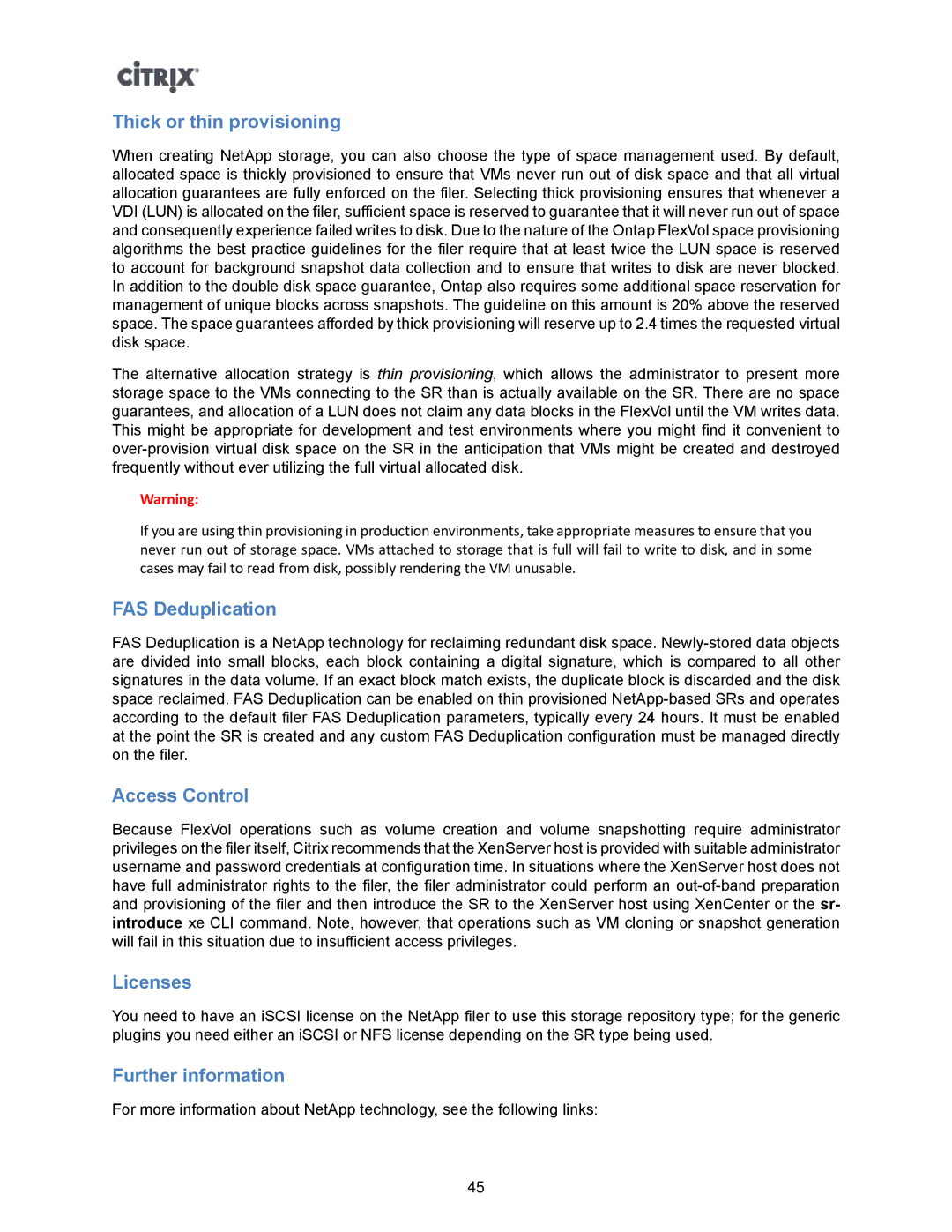Thick or thin provisioning
When creating NetApp storage, you can also choose the type of space management used. By default, allocated space is thickly provisioned to ensure that VMs never run out of disk space and that all virtual allocation guarantees are fully enforced on the filer. Selecting thick provisioning ensures that whenever a VDI (LUN) is allocated on the filer, sufficient space is reserved to guarantee that it will never run out of space and consequently experience failed writes to disk. Due to the nature of the Ontap FlexVol space provisioning algorithms the best practice guidelines for the filer require that at least twice the LUN space is reserved to account for background snapshot data collection and to ensure that writes to disk are never blocked. In addition to the double disk space guarantee, Ontap also requires some additional space reservation for management of unique blocks across snapshots. The guideline on this amount is 20% above the reserved space. The space guarantees afforded by thick provisioning will reserve up to 2.4 times the requested virtual disk space.
The alternative allocation strategy is thin provisioning, which allows the administrator to present more storage space to the VMs connecting to the SR than is actually available on the SR. There are no space guarantees, and allocation of a LUN does not claim any data blocks in the FlexVol until the VM writes data. This might be appropriate for development and test environments where you might find it convenient to
Warning:
If you are using thin provisioning in production environments, take appropriate measures to ensure that you never run out of storage space. VMs attached to storage that is full will fail to write to disk, and in some cases may fail to read from disk, possibly rendering the VM unusable.
FAS Deduplication
FAS Deduplication is a NetApp technology for reclaiming redundant disk space.
Access Control
Because FlexVol operations such as volume creation and volume snapshotting require administrator privileges on the filer itself, Citrix recommends that the XenServer host is provided with suitable administrator username and password credentials at configuration time. In situations where the XenServer host does not have full administrator rights to the filer, the filer administrator could perform an
Licenses
You need to have an iSCSI license on the NetApp filer to use this storage repository type; for the generic plugins you need either an iSCSI or NFS license depending on the SR type being used.
Further information
For more information about NetApp technology, see the following links:
45
